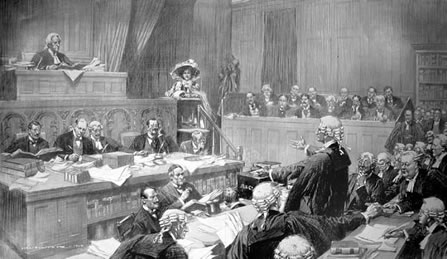
It’s always interesting to stumble across long-forgotten scandals of the late Victorian and Edwardian eras. The tragic case of Mrs. Langworthy (née Mildred Sabine Palliser Long), as recounted by Mrs. Stuart Menzies in her second book of gossip, Further Indiscretions (1918), chills the blood over one hundred years later.
The Langworthy case was remarkable chiefly as a record of villainy that to my mind seems almost unique, and leaves one dumbly wondering at the dark possibilities of cruelty that lie in the human heart.
It also shows the apparently anomalous case of a woman who first obtained a decree nisi with £1500 a year alimony from the Courts and subsequently £20,000 for breach of promise of marriage against the same man. The law is a wonderful institution.
The way I came to know so much about the case was through being asked by Dr. Godson, the great ladies’ doctor of those days, if I would go and see a patient of his who was in great trouble and ill health as well as practically penniless. Of course I went, and from Mrs. Langworthy’s own lips heard her pitiful story, which as it appears to have been entirely forgotten, I relate briefly.
The Mrs. Langworthy of the case had been a Miss Long, the daughter of well-to-do people in Ireland, her father being estate agent at one time to the Marquess of Downshire and later to Lord O’Neile. She was a tall, handsome girl and gifted, as was proved by her passing in 1873 as one of the senior candidates at the Dublin University, taking honours in French, Latin, Euclid and Algebra. Her composition on English literature was chosen as good enough to be read aloud by Professor Dowden. Fired with her success she then went to Cambridge, where she shone in Latin, Divinity, etc.
About this time her father lost most of his money, and Miss Long decided she would cost him nothing more and went out as governess. During a visit to Paris with her brother, who was staying at that comfortable old-fashioned Hotel Bedford, she met the man who was to ruin her life, namely, the exceedingly rich and not ill-looking Mr. Langworthy, with great estates in South America, a magnificently appointed yacht, French chef and all the luxuries and comforts which usually surround men with large fortunes. At the time he became enamoured of Miss Long he was a widower. His first wife, Lady Alice, sister of the second or third Earl of Limerick, died at sea in 1876, under what circumstances I do not know. Mr. Langworthy proved a devoted if somewhat dictatorial lover, and an engagement quickly followed on their first meeting, but Miss Long was told under no circumstances must his mother know anything about it as she might disinherit him; the engagement must be a secret.
During this time he persuaded Miss Long to go for a little cruise in his yacht, having provided a suitable ballast of chaperonage. They stayed at Cherbourg for a day or two, and while there he introduced his fiancee to a number of people, including the Hon. Cecil Cadogan, Mr. Dennison and others. While at Cowes Mr. and Mrs. Vereker invited them to dinner. All was comfortable and plain sailing. One day Mr. Langworthy while at Cherbourg asked Miss Long to go for a drive with him to Caen; they looked at the cathedral and then taking both her hands said, “I want you to marry me at once; I cannot wait any longer for you and have arranged everything.” She was entirely taken by surprise and objected. While he pleaded she turned over in her mind all the circumstances, and feeling there could be nothing but love to influence him, as she was penniless except for her own earnings, consented, knowing nothing about French marriage law.
The carriage was told to stop before a Catholic Church some miles out in the country from Caen. Here awaited them (all having evidently been arranged) a priest in a black cassock and a fat, disagreeable smile, who read some sort of a service in Latin. As a matter of fact the whole thing was a fraud; seemingly such things can be arranged where money and villainy are not wanting. There were many interesting features in the story at this time, much too lengthy and complicated to relate here, but various thoughts came to her mind making Miss Long doubtful about the legality of this marriage ceremony, and suggesting that she would be happier with a second ceremony.
Mr. Langworthy, having had the legal training of a barrister, knew how to turn his knowledge to account, said, certainly if she wanted another ceremony she should have one. This time the chaplain of the American Seaman’s Mission at Antwerp performed it, the divine’s name being the Rev. Doctor Potts, a member of the Presbyterian Church.
What Mr. Langworthy knew and his unfortunate dupe did not know was that only civil marriages are valid in Belgian law. However, in all good faith she had taken part in two ceremonies, the one near Caen in September, 1882, the second in January, 1883, at Antwerp. After this latter Mr. Potts entered the following in his register:—
“Antwerp, January 10th, 1883.—Edward Langworthy, England, widower, 35 years old. Mildred Pallise Long, Belfast (Ireland), maiden, 27 years old. Marriage ceremony by Rev. Arthur Potts.”
This was duly signed by the witnesses, one being Mrs. Potts, the other a Mrs. Bailey, whom I think was acting companion, chaperon or something of the kind, I have forgotten what. A copy of the certificate was handed to Mrs. Langworthy, but it was taken away by her husband, who said he would send it to his solicitors for safe keeping, and he would mark it private and important. He then made his wife promise to keep the marriage secret for a year as he did not wish his mother to know anything about it.
A happy time followed in the yacht; Mr. Langworthy seemed to be deeply in love with his wife; it was all glorious and the days chased each other like some love poems under sunny skies. They stayed a few days at Lisbon, where Mr. Langworthy introduced his wife to Lady Ashton, Lord Francis Cecil and others (this is a point to bear in mind).
From Lisbon, if I remember correctly, they sailed for Buenos Ayres, where Mr. Langworthy owned property. During the voyage his wife told him she expected to become a mother. From this moment his manner entirely changed and, instead of expressing pleasure, exclaimed, “We must put the little beast out to nurse.” By degrees he now became so brutal it was forced upon her he was hoping his treatment, drugs and starvation, would kill the child, and possibly the mother also.
Driven nearly mad by his treatment, one evening she got out of her bed and went in search of her husband, threw her arms round him and implored him to say why he had so changed. He then told her not to make a fool of herself, she knew perfectly well she was not his wife and the child would be illegitimate, and as this had happened she must leave the yacht on reaching Buenos Ayres and go home again at once; if the affair became known it would be his ruin.
Without allowing her to land at their destination, he put her on board a French tramp steamer without a deck house, that having been washed away on its last voyage, and of course without either a doctor or stewardess. Mrs. Langworthy begged for some baby clothes, and was given a box containing a few yards of flannel and calico, and £50 in her pocket and sent off home!
So back to England she came full of misery and shame with nothing to prove the story she had to tell but her wedding ring and the baby. Her pride would not let her seek her people, whom she knew would wish to help her but could not afford it. To use Mrs. Langworthy’s own words to me, “When I first arrived I tramped London trying to find some clergyman to take up my case for me and see me righted; I could get help from none. One told me he had heard stories like that before and was sorry he could do nothing for me.” Another, living in some state in Grosvenor Square, who preached regularly in a fashionable chapel not far from Berkeley and Grosvenor Squares, was sitting one evening after dinner before a comfortable fire sipping coffee from delicate china and toying with a gold spoon, surrounded by expensive fur rugs, books and comforts of all sorts, when Mrs. Langworthy sought his help and told her story. He did not rise from his chair while the poor woman poured forth her tale and implored him to help her. It was a wet night and she was wet through, having tramped the streets all day in hopes of finding some one to help her, her boots were worn through in places and her teeth chattered from cold and want of food. She eventually was told he did not believe a word of her story, it was too impossible, but if it was true she must “Have faith.”
Poor soul! she asked how that was going to find food for her child and herself and turned bitterly away. She described to me her despair as she once more walked along the wet pavements and meditated drowning herself and her child. Passing down Conduit Street she noticed a brass plate on a door with the name of Lumley and Lumley, solicitors, printed on it, she had not tried them, but would do so first thing next morning. She had already tried several solicitors, but she was destitute, friendless, broken in health, the law and the Church refused to help her, justice was her only weapon, while the whole force of the Langworthy’s immense wealth was thrown into the scale against her.
Her husband’s relations would not listen to her, and this is the plight she was in when she entered the offices of Messrs. Lumley and Lumley in Conduit Street. They listened to her story, gave her money to go on with, took the trouble to collect the necessary evidence to prove the ceremonies that had taken place and undertook to fight the case for her. Magnificently they did it through all the courts for four years. Mr. Robert Lumley I do not remember meeting, but Mr. Theodore Lumley I am glad to have known, for he did for this defenceless, broken-hearted woman what not one single shepherd of Christ’s flock would do.
Another revolting feature about the treatment from which this unhappy woman suffered, was the attitude of her own sex, the lodging-house woman where she lodged turned her out on hearing she was not living with her husband! Others treated her as if she was one of the lowest of those who walk the streets for their living. Even had that been the case, they should have shown some humanity to a suffering sister.
I did what I could for her, and by degrees one after another helped her; but that she got justice in the end and her life made possible during the long years while the case was in the courts is entirely due to Messrs. Lumley and Lumley, the solicitors, and to The Pall Mall Gazette, who took her case up warmly, collected money for her, published special editions of their paper with all the details of the case as it unfolded itself from day to day. They also brought out a little booklet or pamphlet, entitled A Romance of the Law Courts, Mrs. Langworthy’s Trials and Triumphs. Anyone wishing to read all the particulars of this extraordinary case cannot do better than get a copy and read it, if there are any now to be had.
Mrs. Langworthy’s troubles were, however, not yet over, though the learned judges held her marriage to be illegal, but a marriage “in fact” and granted her £1500 alimony. Mr. Langworthy had fled to America, refused to pay and was nowhere to be found. His solicitors and counsel worked indefatigably to delay any steps taken by Mrs. Langworthy’s solicitors to obtain the money for her. The husband’s wealth was a terrible weapon. I have been told great London papers even refused, through the influence of Mr. Langworthy’s agents, to insert her lines in their agony columns. Goods of his, seized to pay his debts to his wife, were instantly claimed by his mother as her property and therefore inviolate. While all this was taking place Mrs. Langworthy was often in great need, and but for the kindly help of The Pall Mall Gazette and Messrs. Lumley and Lumley would surely have gone mad.
Twenty thousand pounds on paper did not help her much. Her husband was made a bankrupt, but he had made his English property over to his mother. In the end the victim triumphed, having fought hard for her child, but there was no getting away from the fact that the strain had told upon her considerably. She was aged and broken down at the end of the four years almost beyond recognition.
The end of these people was as tragic as their lives. Mrs. Langworthy rejoined her husband and forgave him; [in 1898] she died suddenly when in Paris with him and he committed suicide next day.

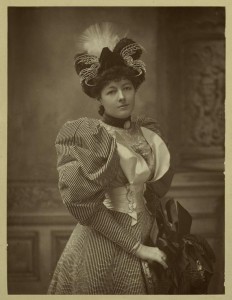
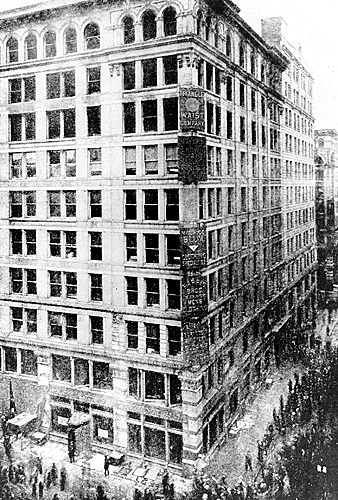
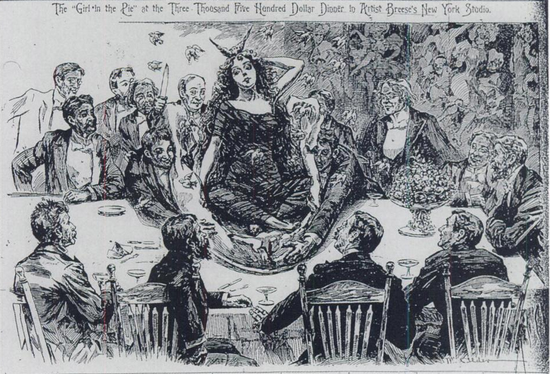
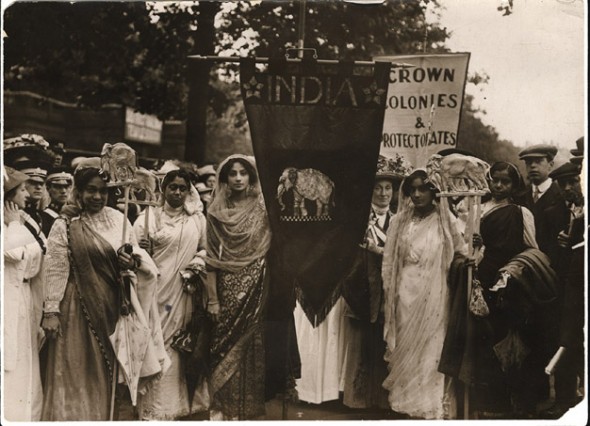
What a tragic story.
Definitely.
Thank you for this post, Evangeline – it is very gratifying to read of the fact that a lawyer, rather than any representative of the church, helped this poor woman and was also one of very few people who believed her!
This is brilliant. I am currently writing a third year 6,000 word essay on W. T. Stead and the Pall Mall Gazette. This has really helped as I am focusing on the Langworthy marriage trial to some extent. Thank you so much…..
You’re welcome! So glad this helped.